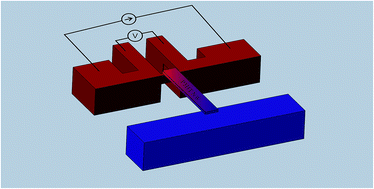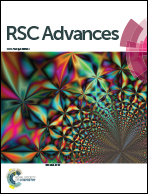Exceptionally low thermal conductivity of poly(3-hexylthiophene) single nanowires†
Abstract
Electrical and thermal conductivity measurements were conducted by using microfabricated four-point probe and T-type nanosensors in a vacuum on poly(3-hexylthiophene) (P3HT) single nanowires prepared by the whisker method. The nanowires had a cross-section of only 5 nm × 15 nm and a length of 0.5–10 μm. The electrical conductance of nanowires was 3.3 × 10−7 1/Ω and remained stable even after exposing the wires to ambient conditions for a few days. The thermal conductivity of a nanowire was 0.055 ± 0.003 W m−1 K−1 which was approximately an order of magnitude lower than other previously reported P3HT single nanowires with a diameter of 120 nm and embedded in anodic aluminum oxide matrix. This thermal conductivity was also approximately four times smaller than that of P3HT amorphous thin films (∼0.2 W m−1 K−1). The exceptionally low thermal conductivity was attributed to increased interface-phonon scattering because heat propagation was confined to an extreme narrow spatial dimension.


 Please wait while we load your content...
Please wait while we load your content...